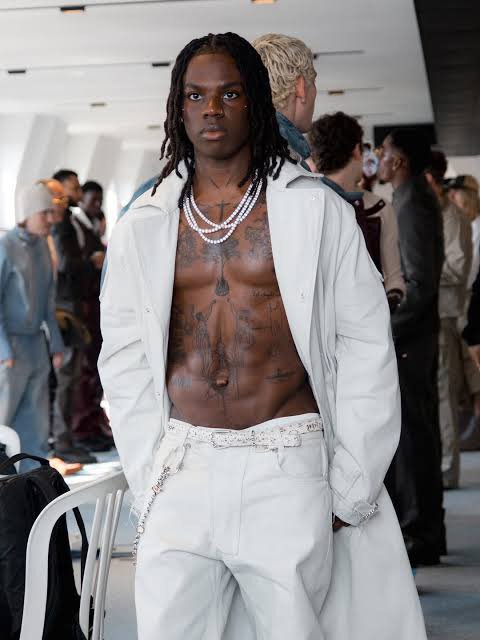A few weeks ago, a photo of American singer and songwriter Khalid went viral on Twitter. His hair was dyed bright blue and styled like a pop star. Someone quote-tweeted the image and wrote: “Branding is really crazy, because I thought that was Wurld.” The replies came flooding in, with nearly everyone saying the same thing: “I still think it is Wurld.”
For a moment, that tweet sparked many similar ones and garnered almost 400k views. Many people agreed due to the strong visual identity Wurld had built over the years. For that brief moment, it wasn’t Wurld’s music that came to mind, it was his blue hair.
This moment, as small and silly as it seemed, shows us something bigger. Nigerian music is no longer just about the songs. It’s about how people see you, your visual style, and the world you create around yourself. What artists wear, how they tweet, their album cover designs, and how they look on stage all create a unique signature that fans can recognise.
Branding, at its core, is about being easy to recognize. In marketing, it’s how you can spot a Coca-Cola bottle just by its shape. In music, it’s how an artist lives in the minds of listeners and the public. In today’s Nigerian pop music scene, branding is the foundation that artists build their careers on. When you take away the music genres, streaming numbers, and radio play, what’s often left is branding.
Look at Naira Marley during his peak years. His music was catchy, but what made him different was his raw, street-smart personality. His slang and rebellious attitude were part of a carefully built image that his fans could recognise, even when he wasn’t releasing new songs.
The same way we know Burna Boy as the genre-mixing, politically aware outsider. Or how Rema’s “Afro-Rave” label created space for him to experiment with different sounds while still feeling like himself.
Wurld’s story is perfect for understanding this. His music releases have been inconsistent by mainstream standards in recent years. But that hasn’t weakened his signature look, which includes blue hair, futuristic style, and smooth fashion choices. That’s branding at work. It protects an artist’s cultural value when the numbers aren’t impressive.
This isn’t only happening in Nigeria, of course. But in a music scene where new artists appear constantly, being memorable has become a survival skill. Branding in Nigerian pop has changed from being a behind-the-scenes marketing job to something organic that artists create themselves.
What makes this even more important is how Nigerian pop music is spreading worldwide. As Afrobeats continues to travel, artists need to stand out, not just in Nigeria, but on a global stage where unique identities can easily get lost. The rise of the artist-as-brand means that when Tems or Asake walks into a room in New York, people already know her style and vibe.
There’s also something to say about branding as protection, especially in an industry where going viral can be a trap. For every artist who breaks through with a hit, many more disappear just as quickly because there’s nothing to keep people interested once the hit stops being popular. But artists who’ve built strong brands still live in their listeners’ minds.
Think of Falz, who can move between comedy skits, music, and activism without seeming scattered because it all fits the character he’s carefully built over the years. Or Odumodublvck, whose red bucket hat, street language, and habit of capitalising his words have created a new template for pop-star storytelling.
To be an artist today is to be a reference point. That requires branding that makes people recognise you. And more importantly, remember you even without the music.
Of course, there are problems here. The pressure to always be visible can hurt artistry. When branding becomes the main focus, it can dilute the music. There’s also the risk of branding becoming fake, forced quirks, artificial soft-boy looks, or too many sunglasses and mystery. But even with these dangers, branding remains the best way to stay relevant, especially in an industry that forgets quickly and forgives slowly.
The tweet about Wurld was funny. But beyond the humour, everyone agreed that in today’s Nigerian pop music, songs need context, stories, and meaning around them. As Nigerian pop continues to grow beyond borders and genres, it will be the artists who use branding as their foundation that will last.
Even Omah Lay, who is about to release his new album “Clarity Of The Mind,” has started his branding story with the kinds of outfits and messages that match the album title. This shows how artists now think about branding from the very beginning of their creative process.
The music still matters, but in a world full of noise, it’s the artists who know how to make themselves unforgettable that will survive and thrive..
